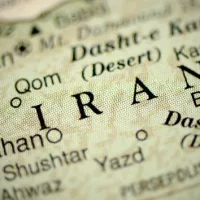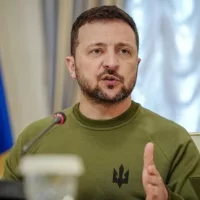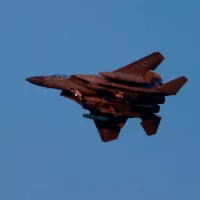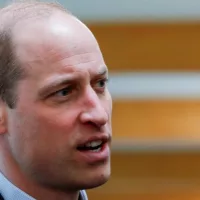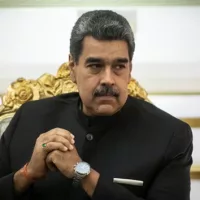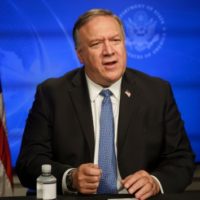
State Department photo by Ron Przysucha/ Public DomainBy CONOR FINNEGAN, ABC News
(WASHINGTON) — With a little over a week left in the Trump administration, Secretary of State Mike Pompeo announced new sanctions Monday on Cuba’s government and the Houthi rebels in Yemen, sparking a barrage of criticism against the latest 11th-hour moves to change U.S. foreign policy.
Congress was so infuriated, particularly about the Houthi designation, that lawmakers’ staff berated a group of State Department officials who were briefing them on the designations Monday morning.
“You need to stop f—ing lying to Congress,” one staffer told the officials, according to two congressional aides.
Pompeo returned Cuba to the list of state sponsors of terrorism, which brings with it the strictest of U.S. sanctions. But designating the Houthis, a rebel group that controls over 80% of Yemen’s population, as a foreign terrorist organization will have particularly devastating consequences, according to U.S. officials and aid groups that work in the war-torn country.
“This is pure diplomatic vandalism,” said David Miliband, president and CEO at the International Rescue Committee, adding that for his staff in Yemen, “This designation makes their task all but impossible. … (The) cost of terrorism designations in the middle of complex conflicts and humanitarian crises can be measured in innocent lives lost.”
After nearly six years of war, Yemen, home to 28 million people, is the world’s worst humanitarian crisis. The United Nations has warned in recent weeks that it could soon face famine, in addition to the coronavirus and cholera, a collapsed economy, widespread malnutrition and deadly attacks on civilians and civilian infrastructure.
The Houthi rebels, increasingly armed by Iran since the start of the conflict, took control of most major cities in 2015. The U.N.-recognized government now controls a slight majority of the territory, but few major population centers despite support from Saudi Arabia and the United Arab Emirates, whose U.S.-backed coalition has bombarded Yemen for years.
Both sides have been accused of war crimes. But the Trump administration has fiercely defended the Saudi coalition, with Trump using his veto power to maintain U.S. assistance and bypass Congress to sell the coalition billions of dollars in weapons. Individual Houthi leaders have been sanctioned over the years, but Pompeo’s decision to designate the entire movement, known formally as Ansar Allah, essentially criminalizes working with them, which aid groups say they have to do.
That jeopardizes the international flow of aid, food and medicine that more than 70% of Yemeni civilians rely on at a time when the humanitarian response is already severely underfunded, including because the U.S. suspended hundreds of millions of aid last year.
Lawmakers’ staff pressed the State Department officials on why Congress hadn’t been briefed on the decision months after it was first reported by the press, according to the two congressional aides. When the officials responded that any press leaks were premature, one staffer interrupted to demand they “stop f—ing lying.”
Several staffers asked the officials whether they knew how many children were going to die because of this “political stunt,” they added. Officials from the U.S. Agency for International Development admitted the humanitarian implications of the sanctions would be “catastrophic,” according to one aide. Foreign Policy magazine first reported on the tense call.
“Yemen imports 90% of its food. In light of near-famine conditions that have already existed in Yemen, this designation will have a devastating effect on Yemen’s food supply and other critical imports unless the executive branch acts now to issue the necessary licenses, waivers and appropriate guidance prior to designation,” said two top Republican lawmakers, Senate Foreign Relations Committee chair James Risch and House Foreign Affairs Committee ranking member Michael McCaul, in a statement.
Those exemptions are not yet in place, but even when they are, humanitarian groups have warned they will make little difference because of the legal hurdles they’d have to jump through. The designation largely prevents them from negotiating with the Houthis for access to needy populations, makes it impossible to import any goods, scares away banks or insurance companies from working with aid groups or even sparks retaliation by Houthi forces.
“The designations are intended to hold Ansarallah accountable for its terrorist acts, including cross-border attacks threatening civilian populations, infrastructure, and commercial shipping,” Pompeo said in a statement late Sunday night, and “to advance efforts to achieve a peaceful, sovereign, and united Yemen that is both free from Iranian interference and at peace with its neighbors.”
During the same briefing call, the State Department officials informed Congress that Pompeo would re-list Cuba as a state sponsor of terrorism, a designation that the Obama administration removed in 2015 as part of its diplomatic overtures to the island nation.
The designation restricts assistance from the U.S. and some international institutions like the World Bank; criminalizes certain kinds of trade; and bans defense sales or exports, including “dual use” items that are for civilian and military purposes.
In a statement Monday, Pompeo cited the Cuban government hosting ELN negotiators, even after Colombia asked they be extradited for a deadly bombing, as well as harboring fugitives sought by U.S. law enforcement, including for murder.
“With this action, we will once again hold Cuba’s government accountable and send a clear message: the Castro regime must end its support for international terrorism and subversion of U.S. justice,” Pompeo said.
Rep. Gregory Meeks, D-N.Y., chair of the House Foreign Affairs Committee, blasted the decision as “hypocrisy” after Trump “incited a domestic terror attack on the U.S. Capitol” last Wednesday.
“It is essential that the State Sponsor of Terrorism list be used judiciously to maintain its seriousness and integrity and that a country is never added to the list unless it meets the legal standard,” he added, urging President-elect Joe Biden’s team to add removing Cuba to its “long ‘to-do’ list.”
The Biden administration will be able to reverse the decision, but it will take — at a minimum — 45 days because of the statutory requirements around state sponsor of terrorism designations. It’s one of several changes they may seek to make as Trump has severely limited U.S. travel to the country and all but cut off U.S. remittances to the Cuban people.
But it’s an open question which of the Trump administration’s final act foreign policy changes Biden’s team will rescind, including another Pompeo change over the weekend — lifting all restrictions on U.S. officials meeting and communicating with Taiwanese officials. That move made it easier for the two sides to hold meetings or communicate even though the U.S. does not recognize Taiwan.
Copyright © 2021, ABC Audio. All rights reserved.






